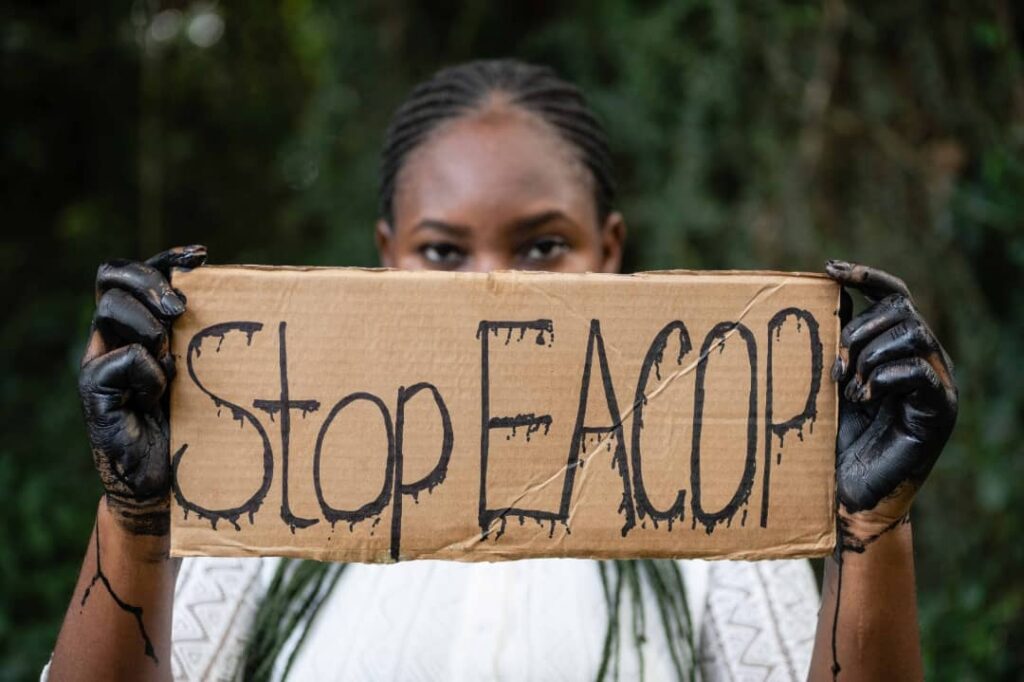
A matrix of crises is simultaneously unfolding. Species are going extinct, atmospheric carbon levels are increasing, new diseases are emerging, and inequality is getting worse. In many ways things look bleak. All these crises call for a radical change of direction. That change may be happening. The signs of change are many, some are subtle and slow, but sometimes change can be sudden.
This week has been a terrible week for big oil, and a good week for climate activists. A Dutch court has ordered Royal Dutch Shell to cut emissions by 45% by 2030. Climate activists have also been influential as shareholders, with successful coups against the management of both Chevron and Exxon. All this unfolded only a week or so after the International Energy Agency released it’s ‘Net Zero by 2050’ report, which essentially advised against any new fossil fuel projects.
The French oil multinational Total is currently constructing the East African Crude Oil Pipeline, or EACOP, across Uganda and Tanzania. It will have devastating impacts on the local ecology and lock us into higher carbon emissions. Local activists are trying to stop it. Today Total is having their AGM. The news from IEA, Shell, Chevron and Exxon will no doubt be on their minds. EACOP is a project that should be cancelled.
Shell is planning to appeal the Dutch court’s decision, and no doubt the management of Exxon, Chevron, Total and the others will try and keep their business as usual model going, with a token bit of greener investment in renewables to try and keep the activists quiet. Most of the oil majors have been involved in decades of systematic lying, backing climate denialism when their own research revealed the huge climate impacts of their industries. In my view most of them have left it too late to change. Probably most will go bankrupt. They have such vast assets which this week’s developments are making look increasingly like worthless stranded assets.
I just want to say a huge thank-you to climate activists everywhere. There are many more battles ahead, but let’s pause long enough to celebrate this week’s victories.

